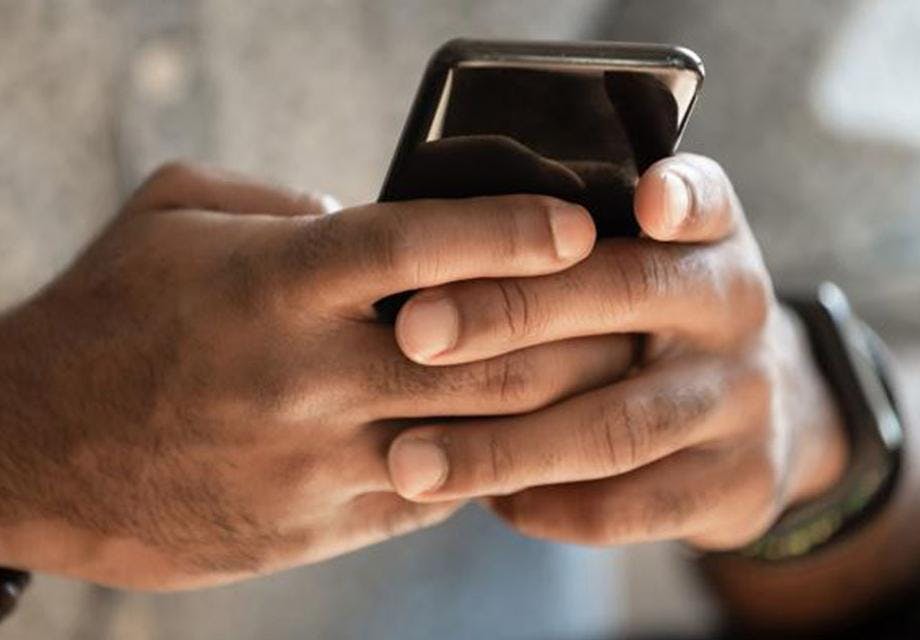Social media as a potential platform for sexual health promotion for gay men and transgender women in African cities
Caitlin Mahon
23 October 2020
Gay men and transgender women who have sex with men in Nairobi and Johannesburg are active social media users, possibly providing an untapped opportunity for sexual health promotion on these platforms.
Around 71% of men who have sex with men and transgender women in Nairobi, Kenya, and 60% in Johannesburg, South Africa, reported using social media to socialise with others or find partners in the last month. The findings point to the importance of social media as a tool to reach these populations, who face significant stigma and discrimination in these settings.
With too few studies previously analysing online behaviour of gay men and transgender women from low- and middle-income countries, the study’s authors sought to understand patterns of social media use in these groups.
They conducted in-depth face-to-face interviews with a diverse range of 30 men who have sex with men and transgender women in each city. Then, using respondent-driven sampling, they recruited 618 participants in Nairobi and 301 participants in Johannesburg for a quantitative analysis.
Most of the participants used social media. A sizeable minority of men who have sex with men and transgender women are not regularly active online (40% in Johannesburg and 30% in Nairobi) with very few reporting never having used a social media platform (14% in Nairobi and 22% in Johannesburg).
The most popular sites and apps used for socialising in the last month were similar in both cities. Generic social media platforms were the most widely used, notably Facebook (53.7% Nairobi; 38.2% Johannesburg) and WhatsApp (46% and 42.9%, respectively). Fewer participants used gay- or dating-specific apps, nearly all of whom also used generic apps/sites to socialise. Grindr was the most frequently cited gay-specific service in both cities, used by 8.2% (Nairobi) and 8.1% (Johannesburg) in the previous month.
In the interviews, participants reported having several different profiles on generic social media sites, with one used specifically for socialising with other men or transgender women who have sex with men. They reported use of men who have sex with men-specific forums as ways to interact with one another, or find others by seeing who liked their photos.
While interacting online was often seen as a safe space for the participants – especially in Nairobi where police raids of gay bars and venues were common – the interviews also highlighted fears about putting themselves online. Blackmail was a consistent concern, with some hesitant to share any personal information or images of themselves until they felt “safe” with the person(s) they were interacting with online.
Interestingly, there was no clear link between online socialising and demographics such as age, sexual or gender identity, nor were there strong differences in the profiles of the participants by use of gay-specific or dating apps.
In terms of the link between socialising online and risky behaviours, the picture was mixed. In Nairobi, online socialisation was associated with increased odds of some risky behaviours, such as receptive anal intercourse and buying or selling sex. In Johannesburg, the evidence was weaker, but online use was associated with condomless anal intercourse and active syphilis.
In terms of engagement in health services, again, there were no significant associations between socialising online in the last month and use of antiretroviral therapy (ART), virological suppression, having tested for HIV recently, knowledge of pre-exposure prophylaxis (among those HIV uninfected or untested), or use or access to condoms or lubricants in either city.
From the analysis, it’s clear that men who have sex with men and transgender women are active online, and have an unmet need for sexual health services – as seen by the increased likelihood of sexual risk-taking behaviours. Online interventions could provide an important avenue for sexual health promotion and peer-led health services review. There is also opportunity for conducting research in online spaces.
This analysis took place in 2016 and 2017, and the authors note that uptake of social media for socialising online has likely increased among men who have sex with men and transgender women – and perhaps even more so since the COVID-19 pandemic hit. While digital security will likely remain a concern for many men, community-based organisations may be well placed to reach these populations, particularly in the context of hostile environments.
Get our news and blogs by email
Keep up-to-date with all our latest news stories and blogs by signing up to the Be in the KNOW news digest.
